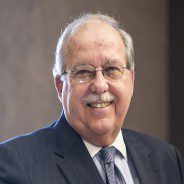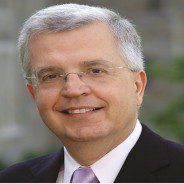Search results for Where Should I Work:
Babson A Leader in “Responsible Management Education”
Babson College has been named one of 25 colleges worldwide that were named the Principles for Responsible Management Education (PRME) Champions. PRME, an initiative supported by the United Nations, stresses the role of management education in dealing with sustainable development challenges, including poverty, gender inequality, and environmental issues. The PMRE Champions group officially launched at the Global Compact Leaders Summit on September 19.
The twenty-five PRME champion institutions will work together to develop activities to address challenges in sustainable management education, in collaboration with United Nations programs, agencies, and funds. During a two-year pilot phase, champion colleges will contribute to working groups, host PRME meetings, and report on their progress in implementing the six PRME principles (listed below). Continue reading…
Sloan Offers New Alumni-Student Mentoring Program
Connections are all-important in the business world, and one of the best sources of connections at the beginning of your career is your school’s alumni network. The MIT Sloan School of Management recognizes this fact, and is trying to make its alumni network more accessible to current students. A new program called the MIT Sloan Alumni-Student Mentoring program will match Sloan graduate students (including MBAs and EMBAs) to Sloan alumni all over the world through an online platform.
The program intends to connect students to the alumni network as soon as they arrive on campus, so that students can gain career guidance and insight about the business world throughout the course of their degree program. Career advice and explanations of the business world can help students make decisions about which electives to take and which fields to explore. The program will also give alumni the chance to remain connected to the school and share their experiences in building their career with future MBAs.
Sloan uses an online platform to connect students and alumni. The program uses data about community members like class year, program, region, and industry to suggest mentor matches for students. Once a student and alumnus are connected, they can define how often and how they will keep in touch themselves. Mentors and mentees can talk on the phone, on skype, over email, and possibly in person.
More than 600 alumni already expressed interest in the program. With over 20,000 alumni in 90 countries and a variety of different industries, Sloan should be able to match students with mentors with similar interests and a wealth of valuable experiences.

Stern Names Ellen Seidman Citi Leadership & Ethics Distinguished Fellow
Have you ever wondered which business leaders you may will have the opportunity to meet in business school? As part of its Citi Program, New York University’s Stern School of Business provides students with the opportunity to meet a distinguished business leader with expertise in how business can benefit society every year. Stern recently named Ellen Seidman its Citi Leadership & Ethics Distinguished Fellow for the 2013-2014 year. Citi Distinguished Fellows are business leaders who have shown through their work how business and government can deal with global problems like environmental concerns and poverty.
The Citi Program and Fellowship are the result of a partnership between the Citi Foundation and NYU Stern to examine the intersection of business and society. The program is part of a larger effort by the Business and Society Program Area at Stern to show students the role of ethics in good business practice. Every spring, this effort culminates in the Citi Program Conference, and the Citi Distinguished Fellow serves as the keynote speaker. Ellen Seidman is the 11th Citi Fellow to fill this role. Continue reading…
Revamping Your Resume, Part 6: Kill Your (Outdated) Darlings
It’s hard to say goodbye. In the context of your resume, these farewells might center on accomplishments that you’re proud of or job descriptions you’ve worked hard on, but which have either outlived their relevance or been crowded out by more recent information. Continue reading…
Baruch’s Center for Corporate Integrity to Host Three Speaking Events Open to General Public
Baruch College’s Zicklin School of Business has posted an incredible line-up of events for the month of September. Organized by the Robert Zicklin Center for Corporate Integrity, these sessions cover a range of topics including Wal-Mart’s global supply chain, trust in corporate America, and NYC bike sharing programs and are open to the general public with mandatory pre-registration.
On September 12, Baruch’s Distinguished Professor of Management, S. Prakash Sethi, will speak about “The World of Wal-Mart” from 12:45pm to 2:15pm. Professor Sethi will look at the working conditions for Wal-Mart’s lowest-wage employees who often work in dangerous, inhumane working conditions. He will discuss the ethics of those conditions while also looking at disturbing recurrence of Wal-Mart’s global supply chain. Lunch and official registration begin at 12:00pm. The event takes place at 55 Lexington Avenue, Room 14-220.
On September 16, 6:30pm to 8pm at Baruch’s Newman Conference Center, 151 E. 25th Street, Room 750, The Conference Board, Inc.’s President and CEO Jonathan Spector will speak about “Trust in Business: How Can American Businesses Help Move the Economy Forward?”. The purpose of Spector’s discussion is twofold: first, he will discuss how Americans have lost confidence and trust in corporate America and what steps can be taken to rebuild trust and boost the economy in the process. Second, Spector will address the fact that The Conference Board, Inc. plans to reopen communication with news media outlets, discussing new findings, but not sharing economic data that might sway the market.
Finally, on September 17 also at Baruch’s Newman Conference Center, 151 E. 25th Street, Room 750, from 6:15pm to 8pm, a panel of experts weigh in on “Ride On: NYC’s CitiBike Share Program.” CitiBike has been a hugely successful program in NYC since it launched in May 2013. The program boasts 65,000 annual members whose daily rides have increased from 6,000 in May to 40,000 in July. Panelists Justin Ginsburg, Project Director of Alta Bicycle Share, Charles Komanoff, Komanoff Energy Associates, John Orcott, the Policy Director of NYC Department of Transportation, and Jon Sellman, the VP of Marketing and Advertising at CitiBike Share Lead will discuss whether the bike sharing program truly benefits New York City as a whole or just the relatively small number of residents and tourists who use the program.
The Baruch College’s Center for Corporate Integrity events should prove to be enormously insightful for interested residents, local professionals, and Zicklin MBA students as well.

Want to Improve World Health? Use Silk, Says Company Formed by Harvard MBAs
It’s a question we’ve all thought about from time to time: how could we use silk to revolutionize the global market in vaccines? Well, you may not have to wonder much longer. Vaxess, a company started by a group of recent Harvard MBA grads, is looking to reshape the global paradigm in vaccines. And, yes, the answer is silk.
“One out of every five people in the world fails to receive basic vaccines,” Michael Schrader, Harvard MBA ’12 and the company’s CEO, recently told the Financial Times. A major obstacle to better distribution is keeping vaccines cool. That’s where silk comes in. A protein found in silk can stabilize vaccines at higher temperatures, which would allow manufacturers to create hardier, more durable products, that will be easier to ship and distribute.
The group’s founder, Livio Valenti, first came upon the idea in Cambodia, where he was working for the UN. There, he met a Tufts professor who was working on the silk protein. Years later, in a class at Harvard Business School called “Commercializing Science,” Valenti recalled the idea and, with a group of classmates, began formulating a business plan. Now, that group has formed a company to solve the business and logistic issues of worldwide distribution, and they expect to bring their product to the global market in the next five or six years.
The young entrepreneurs have won plenty of supporters. Vaxess won the HBS Alumni New Venture Competition in 2013, along with two other business-plan competitions, and altogether the company has raised over $3.75m, which should be enough to keep the company running for at least the next two years.
As one of the world’s premiere cities for scientific and medical research, Boston MBA students frequently take advantage of collaborations with area scientists.
Revamping Your Resume, Part 5: Jettison the Jargon
Working in a specific field and even within a certain company involves the acquisition of specialized language and familiarity with abbreviation and acronyms. Speaking the lingo serves as a form of shorthand for communication with other professionals in your area of expertise, and can help to establish credibility and in-group status. Continue reading…
Direct from the Dean: Joseph DiAngelo of the Haub School of Business
Joseph DiAngelo has been dean of Saint Joseph University’s Haub School of Business (HSB) since 2000, during which time the student body has doubled, making HSB the largest Jesuit business school in the country. Before that, he was dean of Widener University for 13 years. “I am the longest serving dean in the Philadelphia metro region,” he asserts proudly. Continue reading…
2013 Forté Forum Comes to Boston
The Forté Foundation is hosting Boston’s Forté Forum, an event geared toward women interested in pursuing an MBA, on Tuesday, August 20 from 6-9pm at the Sheraton Boston Hotel. The goal of this interactive event is to help women determine whether or not an MBA will help them fulfill their professional aspirations, and provide an opportunity for various business schools to interact with potential applicants.
Onsite registration will begin at 6pm, as will the School Fair. Running the full length of the event, the School Fair will comprise of admissions members from top U.S. and international business schools, with a special emphasis on local schools. Babson College’s F.W. Olin Graduate School of Business, MIT Sloan School of Management, Simmons School of Management, Boston University’s School of Management, and Boston College’s Carroll School of Management are just some of the local business schools that will be represented at the Forté Forum, in addition to other nationally- and internationally-renowned schools (for the full list of participating MBA programs, please refer to Boston Forté Forum’s web page).
For those interested in speaking individually with MBA graduates about their professional experiences, a networking reception with light refreshments will be held from 6-7pm.
From 7-8pm is the MBA Alumnae Panel, which will feature MBA women in various industries and career stages, and will cover a wide range of topics; such topics include how they chose their career, what motivated them to pursue an MBA, and the various successes and obstacles they’ve faced.
At 8:15pm, an Admissions Panel made up of seasoned MBA admissions professionals will discuss admissions requirements, researching schools, the application process, and how to finance an MBA.
Online registration has ended, so those wishing to attend will be prompted to register at the door and pay an entrance fee of $5. Attendees are encouraged but not required to stay for the full duration of the event, and may come and go as necessary. Those seeking more information should email forte@fortefoundation.org.

Direct from the Dean: M. Moshe Porat of Temple’s Fox School of Business
When Dr. M. Moshe Porat became dean of Temple University’s Fox School of Business 17 years ago, the school was regarded as a good, local commuter school. In a recent Q&A with MetroMBA, Porat shared that today Fox is well on its way to being known as one of the best public-urban business schools in the country. Continue reading…
Revamping Your Resume, Part 1: Let’s Get Ready to Résumé
So it’s time to update your resume. We recognize that this might not top your list of things you look forward to doing when you get home from work (and frankly, we might worry about you if it did), and indeed, this can be a daunting task. Continue reading…
Bain & Co. Considers using GMAT integrated reasoning scores in hiring process
Bain & Co., a top management consulting firm based in Boston, may begin to rely on the GMAT’s new Integrated Reasoning section to assess applicants for consulting positions.
Introduced in June 2012, the Integrated Reasoning section measures the test-taker’s ability to analyze and synthesize data, and consists of the following types of questions: graphics interpretation, two-part analysis, table analysis, and multi-source reasoning. Because of its relative newness, the Integrated Reasoning section has not yet been fully integrated into the business school admissions process, but its potential usefulness as a hiring tool may change that.
“The IR scores are trying to test analytical abilities, which is important to us,” explained Keith Bevans, global head of recruiting at Bain, “We hope it’s a good match for determining if you’ll be successful at Bain.” Bevans emphasized that should scores be used for hiring purposes, they will be just one aspect of the candidate’s profile; past work experience, education, GMAT scores, leadership experience and interviews all play roles in the hiring process.
Schools such as Harvard Business School on average see a quarter of their graduates enter the consulting industry, with McKinsey, Boston Consulting Group, and Bain combined hiring more than 500 graduates each year. Obtaining a “big three” consulting job is no small feat – interviews typically require the applicant to solve complex brain teasers with real-world applicability. Though Integrated Reasoning questions are far more abstract, both assess a similar way of problem-solving.
“When they realize the type of skill it measures,” Tami Fassinger, chief recruiting officer at Vanderbilt University’s Owen Graduate School of Management, told Businessweek, “I predict the firms that currently want to screen based on high GMATs will want to screen for high IR scores.”
While not all firms have indicated they are willing to place such a high premium on Integrated Reasoning scores, a decision by Bain–regarded as a top recruiter of MBA talent–to utilize the IR section in its hiring could have major ramifications for both current MBA students and MBA applicants.

Direct from the Dean: Carroll’s Jeffrey Ringuest
Continuing our conversations with top officials at business schools throughout the MetroMBA network, we spoke recently with Jeffrey Ringuest, associate dean of Graduate Programs at Boston College’s Carroll School of Management. Jeff has been Carroll’s associate dean for the past seven years, and before that he served as director of graduate curriculum. He also taught business courses in the operations department as a professor and department chair. In all, he has been at Boston College for more than 25 years–by now he knows the place pretty well.
Jeff actually took time out of his vacation to answer our questions (!!), and for that we are very grateful. Read on to learn about Carroll’s growing strength in the areas of marketing and data analytics, the unique benefits of its small class size (just 100 students), what it means to be part of a network of Jesuit schools, and more.
Direct from the Dean: LeBow’s Frank Linnehan
Stats and rankings have their place, but when you really want to know what makes a school tick, it helps to hear it in the dean’s own words. In this new series we’re sitting down with deans and other top officials at schools throughout the MetroMBA network and asking them to tell us what makes their school stand out. Continue reading…
Lubin Marketing Professor Discusses Job Prospects in the Marketing and Advertising Fields
The Street, a source of current business and financial news, consulted Pace University’s Lubin School of Business Professor of Marketing, Dr. Larry Chiagouris, late last month about a choice faced by students interested in the similar, yet distinct fields of Marketing and Advertising: when considering post-graduate job opportunity and earning potential, which discipline should they specialize in? Dr. Chiagouris, author of The Secret to Getting a Job After College: Marketing Tactics to Turn Degrees Into Dollars (Brand New Marketing Publishers, 2011), gave TheStreet his expert feedback concerning jobs and salaries for Marketing and Advertising professionals.
Professor Chiagouris described the Marketing specialization as a broader, more diversified line of study. Marketing majors are employable within a much wider range of industries; businesses must be marketed regardless of the products and services they offer. Chiagouris explained that Advertising specialists are really limited to their own industry for employment because the academic training in Advertisement is tailored to that industry in particular. However, setting aside any professional allegiance to the Marketing field, Chiagouris is clear that employers frequently seek out hyper-specialization and set skillsets among potential employees. Therefore, although they may be limited to their own industry, Advertising students hold more appeal for employers than Marketing students according to Chiagouris’s research on post-graduate employment within the two fields.
Professor Chiagouris’s assessment shifted from job opportunity to earning potential, the other deciding factor between Advertising and Marketing according to The Street’s parameters. Chiagouris explained that Marketing and Advertising specialists will initially receive very similar compensation when they first enter the workforce. However, because Advertising professionals focus on sales, there is no limit to their earning potential. If sales continue, and they close deals with more clients, their salaries grow. Marketing professionals, connected with particular business(es), will peak much sooner in terms of salary growth. According to Chiagouris’s research, after five years, the Marketing professional who started off making a salary similar to his Advertising counterpart will make around $60,000 to $70,000, whereas the five-year Advertising Executive will likely make around $200,000.
Quantitative data aside, potential Marketers or Advertisers will have to weigh their personal preferences when determining their specialization; Professor Chiagouris’s data shines a light on some of the job hiring and compensation statistics, but cannot (by his own admission) account for the element of individual interest that will ultimately be the deciding factor for a student choosing an academic or professional specialization.
Learn More About Pace’s MBA Programs Here >>
Ken Lombard, Real Estate Investment Expert, Offers B-School Advice in New York Times Interview
On July 6, New York Times journalist Adam Bryant sat down with Ken Lombard, member of the Capri Capital Partners investment team and frequent guest speaker at business schools across the country, including UPenn’s Wharton and Harvard Business School. Lombard’s nuggets of wisdom for current MBA students and recent graduates came from a place of knowledge and experience. Lombard has worked for 31 years in real estate investment and management. Before joining CCP, he served as President of Starbucks Entertainment and headed the (Magic) Johnson Development Corporation (JDC). Bryant asked Lombard for his best advice for b-school students; Lombard’s recommendations centered on two things: drive for success and the ability to make tough decisions.
Lombard’s first suggestion for MBA students—stay hungry for success and stay in the game of always learning—was meant to encourage lifelong business “learning.” In Lombard’s experience, some students finish an MBA, believe they’ve completed their time as a student, and lose some of the edge that brought them to business school in the first place. Lombard characterizes the competitive economy as a “game,” and if you want to win, you have to be “hungry” for achievement and growth. Otherwise, others will bypass you.
When Bryant asked Lombard to characterize business professionals he might hire, Lombard explained that authenticity, a desire to learn from those in one’s field, and the ability to answer questions with clarity and humility impressed him most. Lombard believes that the MBA degree sets a solid foundation of knowledge, but that one should continue to evolve when he or she enters the workplace and is exposed to colleagues and competition.
Lombard’s second suggestion to MBA students was simply to trust their instincts and to know when to put aside statistical analysis and take a calculated risk. Lombard conceptualizes business acumen as a combination of strong analytical skills with the courage of leadership; analytical leaders can still make a decision even with an uncertain outcome. Harkening back to his first point about continual business learning, Lombard closed the interview advising up-and-coming business professionals to seek out those who have succeeded in their industries, learn what they can from them, and never feel as if what has already been done can’t be done again.
Tech Firms, Start-ups and Nontraditional Careers: MIT Sloan’s MBA Class of 2013 Branches Out
Official employment reports for the MIT Sloan School of Management Class of 2013 have yet to be released, but Susan Kline, Director of Sloan’s Career Development Office, shed some light on what the most recent class of MBA graduates will be doing as they join the workforce. According to Kline’s data, approximately forty percent of the Sloan MBA class of 2013 will pursue non-traditional business ventures and specializations.
The less traditional specializations Sloan’s most recent graduates gravitate to include: entrepreneurship, sustainability, healthcare, entertainment, media and sports management, among others. To Kline, the shift in focus demonstrates foresight; innovative MBA graduates appear ready to adapt to a competitive economy by any means necessary. She predicts that record number of Sloan students will launch their own businesses, begin their careers in the tech industry, and specialize within entrepreneurial niches of traditional business areas like consulting, finance, and technology. Meanwhile, interest in pursuing traditional MBA careers like investment banking has stagnated.
Most importantly, she says this is a national trend not confined to MIT.
Kline’s analysis comes on the heels of remarks by Columbia Business School Dean Glenn Hubbard about the importance of integrated curricula to MBA study. On its face, MIT’s employment data might seem to undermine Hubbard’s suggestion that MBAs should avoid narrow, specialized courses of study. In fact, Kline’s perspective could vindicate Hubbard’s pedagogical insistence on the importance of a general management education. The takeaway is that economic pressures are pushing MBA graduates to become more creative, independent, adaptable and entrepreneurial, whether they work for an established firm or for themselves. That requires a generalist’s grasp of all the various functions of business and how they fit together, which is what the broad management foundation of an MBA can provide.
Related articles
- MIT Sloan and BPMA Discuss an Untapped Business Resource: Customer Innovation (metromba.com)
- MIT Sloan Professor Paves the Way for Women Entrepreneurs (metromba.com)

Exports Critical to Growth for NYC Small Businesses, Forecasts New Report
Small businesses based in New York City are increasingly dependent on exporting their products and services, according to a report from Manhattan Borough President Scott Stringer that was reported by the Wall Street Journal on June 11th. The news is relevant to prospective MBA students intending to pursue careers at small businesses or startups in New York City. These professionals will increasingly design, market and sell their products or services to international markets, and should consider MBA programs with concentrations in international business and global supply chain management.
Larger businesses headquartered in NYC have long exported on a global scale. Today, however, smaller ventures serve as the chief source of job growth in the city. Exports to new international markets saved many of these firms from the sharpest pains of the economic recession, while many of the city’s larger firms and financial institutions struggled.
NYC’s small business owners and entrepreneurs may not have to go it alone much longer when they export. Business leaders in cities like Seattle and Los Angeles have worked toward creating independent councils focused on developing communication channels and opportunities chiefly for exporters.
Many established small business owners in New York are pushing for similar support as they consider where and how to distribute their products. Stringer’s report proposes uniting the functions of over 17 different New York City agencies into a single independent regional export council, an idea that has been endorsed by New York City Council Speaker and prominent mayoral candidate Christine Quinn.

















